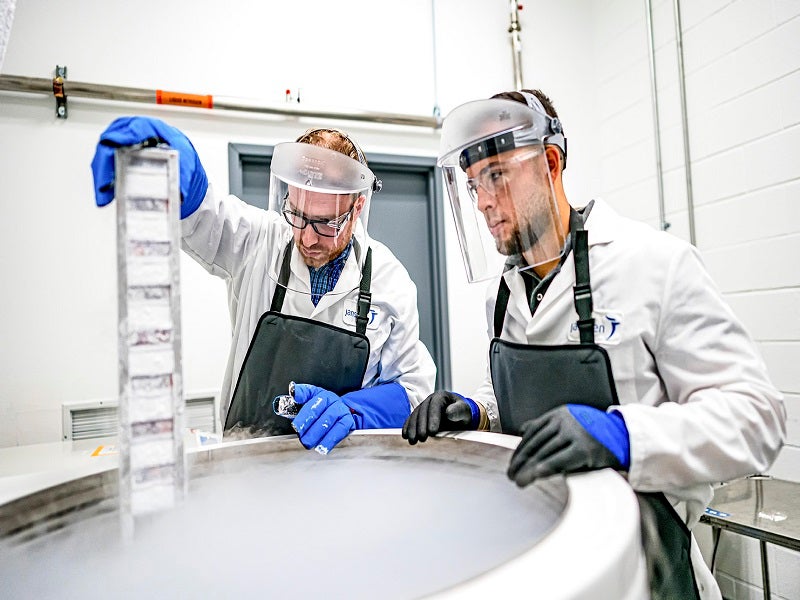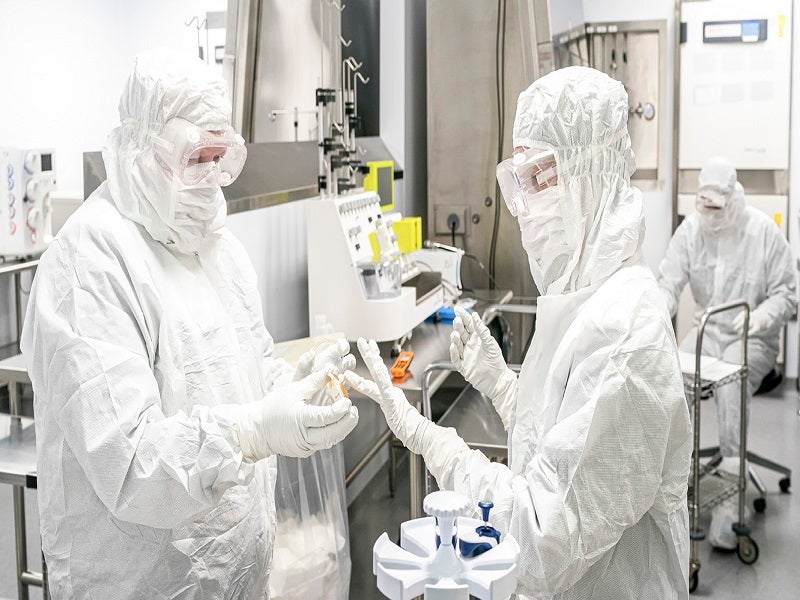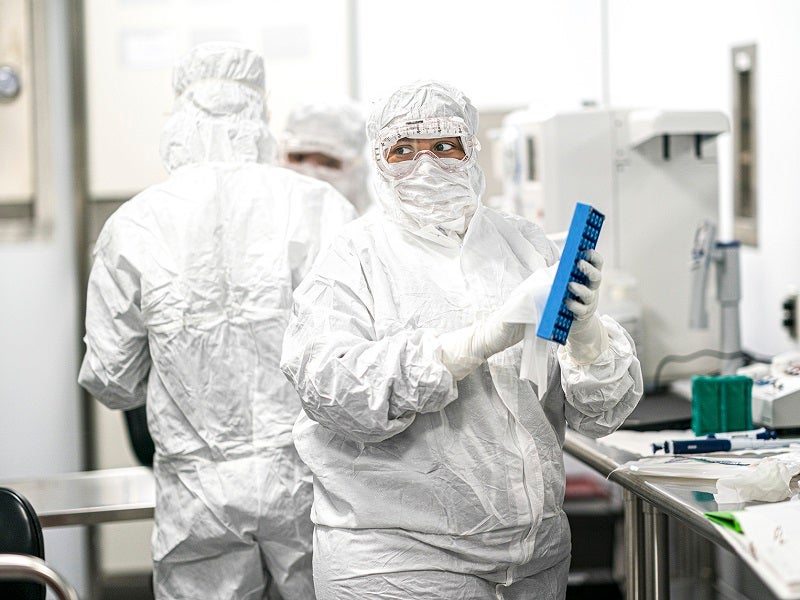Carvykti™ (ciltacabtagene autoleucel) is a B-cell maturation antigen (BCMA) directed chimeric antigen receptor (CAR) T-cell therapy indicated for the treatment of adult patients with relapsed or refractory multiple myeloma (RRMM).
Patients receiving Carvykti must have undergone at least four prior lines of treatment, including an immunomodulatory agent, a proteasome inhibitor and an anti-CD38 monoclonal antibody, for the drug to be prescribed.
Janssen Pharmaceuticals and Legend Biotech are developing and commercialising the drug under an exclusive worldwide licence and collaboration agreement signed in December 2017.
Each dose of Carvykti contains a cell suspension of 0.5-1.0 X 106 CAR-positive T-cells/kg body weight in one infusion bag, up to a maximum of 1×108 viable CAR-positive T-cells for intravenous administration.
Carvykti is available to certified healthcare facilities only through the restricted Carvykti Risk Evaluation and Mitigation Strategy (REMS) programme to mitigate risks associated with neurologic toxicities following the drug’s administration.
Regulatory approvals for Carvykti
Carvykti received orphan drug designation from the US Food and Drug Administration (FDA) in February 2019 and from the European Commission (EC) in February 2020. It was also granted a breakthrough therapy designation (BTD) in the US in December 2019 and in China in August 2020.
In March 2021, Janssen submitted a biologics licence application (BLA) to the FDA for Carvykti (ciltacabtagene autoleucel) for the treatment of RRMM patients. The BLA was accepted under priority review in May 2021.
In April 2021, Janssen submitted a marketing authorisation application (MAA) to the European Medicines Agency (EMA) for Carvykti for the treatment of patients with RRMM.
The FDA approved Carvykti™ (ciltacabtagene autoleucel) for the treatment of RRMM in February 2022.
Multiple myeloma causes and symptoms
Multiple myeloma (MM), also known as Kahler’s disease, is a type of bone marrow cancer. It is an incurable blood cancer that affects plasma cells in the bone marrow and is characterised by uncontrolled plasma cell proliferation. When these plasma cells are damaged, they overgrow and replace normal cells in the bone marrow with tumours.
Patients who receive the therapy experience a state of remission that does not show any symptoms, although symptoms may reappear after a period of initial, partial or complete remission. When the disease progresses within 60 days of previous therapy, the condition is referred to as refractory MM.
While some MM patients do not show any signs or symptoms, others develop symptoms such as bone abnormalities, low blood counts, renal problems, and high levels of calcium in the blood.
The number of patients diagnosed with MM in Europe was estimated at 50,918 in 2020, while deaths due to the condition were estimated to exceed 32,400.
The survival rate in about half of newly diagnosed patients is estimated at less than five years, while about 10% of individuals with MM survive for just one year after being diagnosed.
Carvykti’s mechanism of action
Carvykti is a genetically modified autologous T-cell immunotherapy that involves reprogramming T-cells taken from a patient with a transgene encoding a CAR that recognises and destroys BCMA-expressing cells.
The Carvykti CAR protein comprises two BCMA-targeting single-domain antibodies linked to a 4-1BB co-stimulatory domain and a CD3-zeta (CD3ζ) signalling cytoplasmic domain.
The CAR stimulates T-cell activation and the expansion and elimination of target cells after attaching to BCMA-expressing cells.
Clinical trials on Carvykti
The FDA’s approval was based on a single-arm, open-label, multi-centre phase Ib/II study named CARTITUDE-1, which evaluated Carvykti’s safety and efficacy in treating adult patients with RRMM who had received at least three prior lines of antimyeloma therapy.
A total of 97 patients volunteered for the CARTITUDE-1 trial and received a single Carvykti infusion at a target dose of 0.75 × 106 CAR-positive viable T-cells/kg) five to seven days following the start of lymphodepletion.
The trial’s primary endpoint was overall response rate (ORR), while the secondary endpoints were duration of response (DOR) and progression-free survival (PFS).
The ORR was 97.9% (N=95), while 78.4% of patients (N=76) achieved a stringent complete response (sCR). The median DOR was 21.8 months after a median of 18 months of follow-up. The study indicated a 77% PFS rate at 12 months and an overall survival rate of 89%.
Adverse reactions that occurred in at least 20% of patients treated with Carvykti included nausea, diarrhoea, fatigue, pyrexia, cytokine release syndrome (CRS), upper respiratory tract infection, constipation, vomiting, oedema, dizziness, decreased appetite, headache, coagulopathy, tachycardia, hypotension, and musculoskeletal pain.





